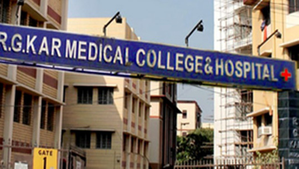Kolkata: The more things change, the more they stay the same. At the turn of the year, since the brutal rape and murder of the 31-year-old post-graduate trainee doctor at Kar Medical College and Hospital shook the conscience of urban Bengal, stakeholders of protest movements that followed believe that this 19th-century French proverb may hold credence.
“There are still no palpable measures that make us feel safe as women in the city’s public places at night,” said Rimjhim Sinha, social science researcher and activist who initiated the ‘Reclaim the Night’ mass movement in August last year, which dragged lakhs out of their homes seeking justice for the Kar victim.
Sinha criticised the “hollowness” of the state government’s promises made within hours of agitators hitting the streets at the stroke of midnight August 14 last year, which included the deployment of ‘Rattirer Sathi’ on-duty women volunteers at night, safe zones for women with monitored CCTV coverage and launch of a special mobile app with alarm mechanism for working women.
“I have never come across a ‘Rattirer Sathi’ volunteer on the road at night during the past year. I don’t know of any other women who have,” Sinha claimed.
“I do not know how effective the mobile app has proved to be, but I can bet it is of no use to poor working women who do not use smartphones or carry cell phones,” she said.
Stressing that the government announcements remained confined “only on pen and paper with hardly any practical implementation”, the activist questioned the state’s “apathy” in making gender sensitivity and sex education modules compulsory in schools that would have made “the real difference”.
Sinha referred to the Mamata Banerjee government’s initial response to those agitations for gender justice, where it recommended working women should be spared night duty, wherever possible.
“It is a myth that women get assaulted by strangers outside their homes. Statistics confirm that most cases of sexual assaults are perpetrated by known people and in homes, be it in the form of domestic violence or marital rape,” she argued.
But not all is disappointing in the Kar crime aftermath. Sinha feels that women across Bengal are more emancipated now in overcoming hesitations to raise voices which the “Reclaim the Night” agitations have paved the way for.
“I have met pregnant women and women carrying their infants who stood outside state School Service Commission office all night with job reinstatement demands. I have seen school children, girls all of 14-16 years, block roads in Sonarpur demanding that their broken road to school be mended. These, to me, are examples of women finding their own voices,” she said.
Women here do not wait for anyone to speak on their behalf anymore, they now want a say in decision-making processes, Sinha said, adding, “That’s progress in itself”.
Leaders of the Junior Doctors Front – which spearheaded the agitation of the state’s medical fraternity and held an initial 42-day ‘cease work’ strike in the wake of the Kar incident – said that although certain key demands remain unachieved, the protests yielded significant gains.
“The resistance ensured that major heads rolled,” said Aniket Mahata, one of the Front leaders.
“While we believe that the convict Sanjoy Rai wasn’t the only one involved in the crime and justice for Abhaya is yet to be fully served since the CBI hasn’t submitted a supplementary chargesheet naming others, still we could force the state to hold a significant number of people accountable. As many as 11 high-ranking officials in the state’s health and police departments were either removed or transferred,” Mahata said.
The doctor was referring to the removal of now-jailed ex-RG Kar principal Sandip Ghosh, and the transfer of top college authorities, health department brass like DME and DHS and then Kolkata Police Commissioner Vineet Goyal and DC (North) in the aftermath of the crime.
“Ghosh and others currently remain in jail for rampant corruption that prevailed in the health sector. Our sustained agitations helped expose the ongoing medical scam in the state,” Mahata asserted.
He said that the movement achieved only partial success in ensuring that a repeat of the horrible crime never happened in the state’s institutions in future.
“The intensity of measures to tighten campus security has subsided with time. CCTV cameras and rest rooms, which were supposed to be set up under Supreme Court monitoring aren’t up to the required mark. The central referral and hospital bed monitoring systems, which worked marvelously for the first two months, seem to have now gone again to the cold store,” the doctor said.
“After all, the hospital authorities initially wanted to pass it off as ‘suicide’. It’s the people who held their spine erect and established that this was a crime most foul,” he said.
Author and analyst Maidul Islam said that more than the social impact, the protests had greater political significance.
“I believe that the evils of patriarchy in Bengal’s society exist pretty much in all their ‘glory’, despite the protests. Sexual assault incidents show no signs of ebbing, the latest crime inside the South Calcutta Law College campus is but an example,” Islam said.
“The impact may not lead to a regime change in the state, since this is still largely an urban middle-class phenomenon. But it has certainly revived the disappointment cycle in Bengal’s society which has repeatedly popped up during all previous political regimes,” he said.
PTI






































